Daniel Sutter: Drones, self-driving vehicles, and the future

Two firsts occurred recently for drones and self-driving vehicles. On June 30, the first highway death in a self-driving car occurred when a Tesla Model S on autopilot hit a tractor-trailer near Gainesville, Florida. Then in July, a Reno, Nevada, 7-Eleven conducted the first Federal Aviation Administration (FAA) approved drone delivery. The historic delivery included Slurpees, donuts, coffee, and chicken sandwiches. Drones and self-driving systems for vehicles are both emerging under Federal regulation. While we need rules governing these technologies, the government can also make rules to protect established commercial interests. Whether politics will bless these technologies or block them to protect established economic interests remains to be seen. So far regulators are allowing development. In June the FAA released its long-awaited rules for commercial drones, to replace the current system of special permits. Drones will have to be registered and operated by holders of a drone pilot license, with operation at night or out of the pilot’s sight restricted. Many commercial users seem ready to move forward under these rules. National Highway Traffic Safety Administration (NHTSA) director Dr. Mark Rosekind strongly supported self-driving vehicles last month in San Francisco. This was noteworthy, because although self-driving cars have had encouraging road tests, the inevitable fatal accident could have afforded an opportunity to apply regulatory brakes. Dr. Rosekind announced in San Francisco, “I can tell you that no one incident will derail the Department of Transportation and NHTSA from its mission to improve safety on the roads by pursuing new life saving technologies.” Drones and self-driving cars illustrate the never-ending economic clash between the past and the future. The successful economic practices of the past have built the established businesses of today. New products and technologies threaten established businesses. Life is good in America today, with a high standard of living, people living longer than ever, and the ability do things that would have been unimaginable 100 years ago. For the future to prevail over the past, we must be able to envision how a future that does not exist yet could be even better than today. Both drones and self-driving cars could significantly improve the future. The Association for Unmanned Vehicle Systems International projects that drones could generate $14 billion in economic value annually within three years. Such projections are often self-promoting hooey, but uses for drones in surveying and agriculture surely indicate enormous potential value creation. And I await drone package delivery from Amazon. The benefits of self-driving vehicles loom even larger. Over 30,000 fatalities and 2 million injuries occur on America’s highways annually. The NHTSA calculates that if we put a dollar value on all of the losses, auto accidents cost our nation $1 trillion a year. And 94% of traffic accidents are attributable to driver error. Even assuming an occasional crash, self-driving cars could potentially eliminate a majority of accidents. Self-driving cars could provide the handicapped or elderly mobility comparable to other Americans. Adults could consume alcoholic beverages without killing or injuring themselves or others when driving home. Americans drove 3 trillion miles in 2014, and these drivers’ time could be freed up to safely text, talk on the cell phone, or read. Self-driving technology could reduce costs in transportation, as 3.8 million people work as motor vehicle operators. Trucking has provided America millions of good jobs, but companies have been struggling to recruit younger drivers. Technology might avert a truck driver shortage and lower the price of many goods for consumers. The legal burdens the taxi industry has placed on ridesharing companies Uber and Lyft, however, illustrate why regulation might deny us the benefits of drones and self-driving vehicles. Cities have used regulation to protect existing taxi monopolies. Just recently, Austin, Texas, voted for regulations ending ride sharing service there. The NHTSA’s Dr. Rosekind may sincerely want to allow self-driving cars to develop. But numerous businesses threatened by self-driving vehicles (or drones) could seek to throttle the competition. If politicians side with the established interests, even the best intentioned regulators will not prevent regulation from being used to protect the past from the future. ••• Daniel Sutter is the Charles G. Koch Professor of Economics with the Manuel H. Johnson Center for Political Economy at Troy University and host of Econversations on TrojanVision. The opinions expressed in this column are the author’s alone and do not necessarily reflect the views of Troy University.
Will Lochamy: An Uber success?
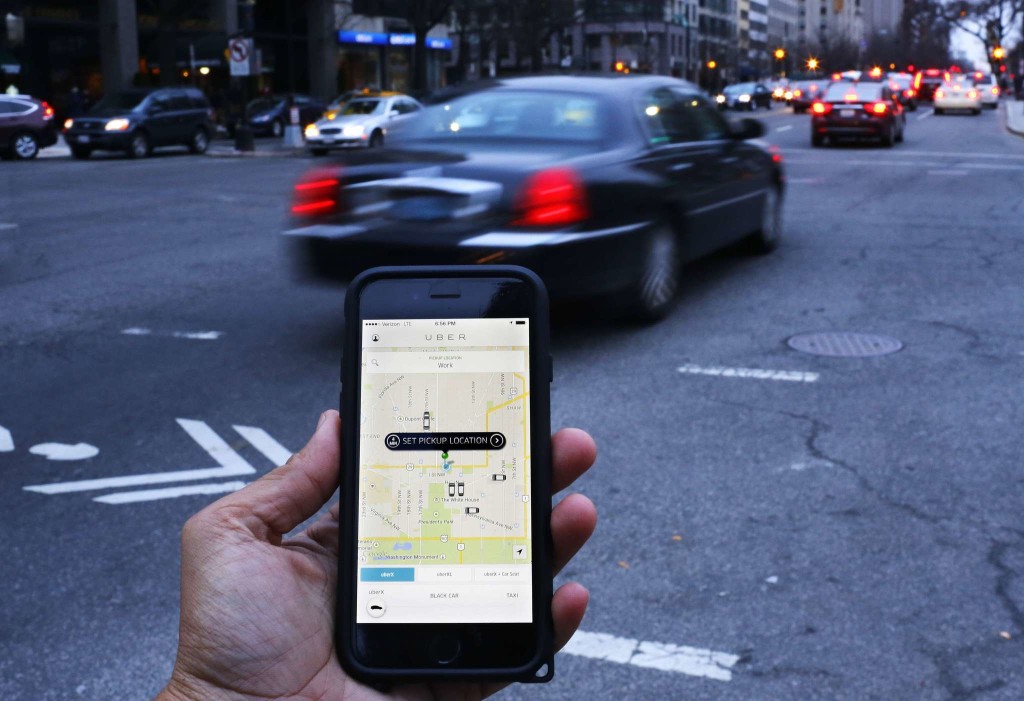
Can you believe we’ve made it? I mean, it’s a miracle that we’re still here! Think about it … Y2K, quicksand, Zima, the Mayan calendar, and even Uber. We’ve survived, folks! Chicken Little’s whole “acorn story” was more convincing than Birmingham City Councilor Kim Rafferty’s anti-Uber charade. While supposedly only representing the community, she appeared on a national propaganda video produced by the Taxi, Limousine, and Paratransit Association. Speaking about Uber, Henny Penny… I mean Rafferty, said, “Just because you need a ride, doesn’t mean you have to be abused or taken advantage of.” It get’s better. She actually said, “We continue to stand before a millennial groundswell that is manipulated and tantalized by shiny, newfangled app gadgetry, convenience, and self-service with no concept of public service and no care for public safety. Social media may be pretty, but it will not serve you well when the battery goes dead.” I’m assuming she thinks we should stop driving cars as well, because, you know … they might run out of gas. Thank goodness our batteries haven’t died. We’ve now been using Uber for over seven months in Birmingham. That’s right; the scary, unregulated, bogey man-driven, rideshare service that everyone warned us about. Close your eyes, because here is what people have experienced: People from 45 different countries have used Uber in Birmingham. “Since Uber came along, I’ve personally witnessed a complete transformation in the landscape of transportation in Birmingham. Where there are STILL no cabs, we now have Uber. Our customers now have a reliable, affordable, safe option to get around when they make the choice to not drive,” said Cliff Atkins, owner of 41st Street Pub and Rowe’s Avondale. “Uber is a valuable service and safety enhancement to our citizens. There is no other way to see it unless you’re serving some other end.” Birmingham City Councilor Sheila Tyson said, “We haven’t had any complaints. If they had complaints, trust me, they would blow our phones up.” “There are no longer lengthy wait times. Also, an added bonus has been the paper trail Uber leaves. Knowing exactly when you rode, who drove you, and the route you took home is extremely helpful to our customers,” said Joseph Hoskin, general manager of Innisfree Irish Pub. The average wait time for an Uber in Birmingham is four minutes. “The first six months (with Uber) have been all we had envisioned: creation of jobs, decreased incidents of DUI, and satisfied out-of-town visitors who have more reliable transportation to and from the Birmingham airport. It’s an all-around success story for our city,” said Hoover City Councilor John Lyda. It took Birmingham 18 long months to get past the red tape. I don’t want to think about the negative things that might have happened during that time without ridesharing. The proof is in the pudding. I stood before an Alabama State House in 2015 that didn’t know what Uber was. There’s no excuse now. Drinking and driving, reliable transportation, and outdated thinking isn’t a just a Birmingham thing. It’s time to take this out of the local municipalities’ hands and pass statewide legislation. Oh, and thanks to the drivers. You guys and gals have been on your best behavior. Let’s keep it that way. We’d hate for one of you to mess it up for the rest of us. Will Lochamy is co-host of the radio show, “Oh Brother Radio” on Birmingham Mountain Radio (107.3FM).
Uber to return to Auburn
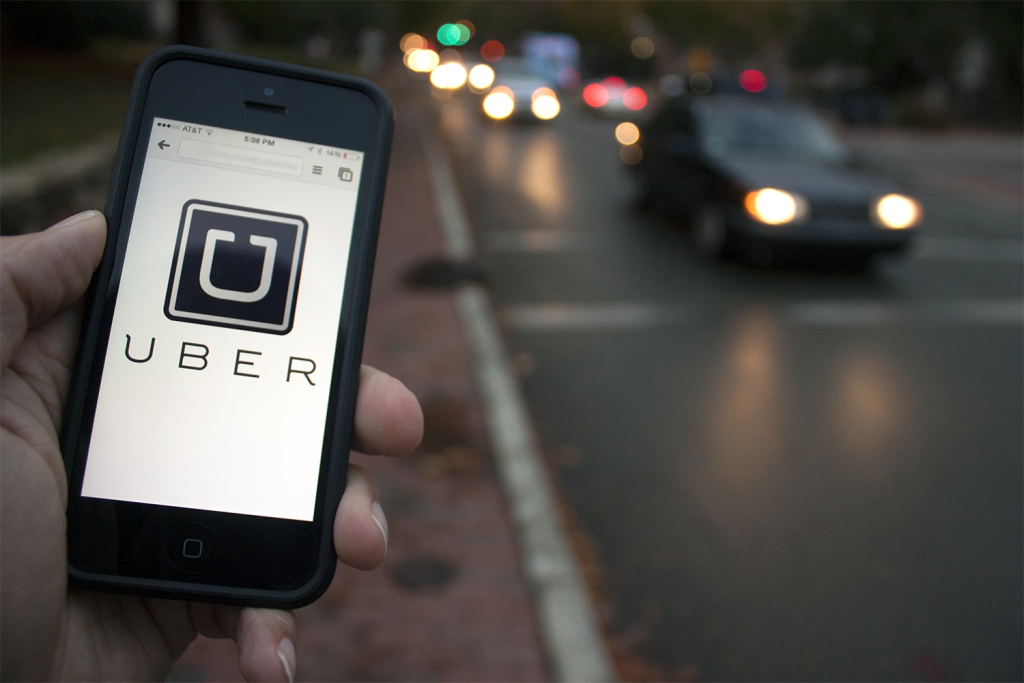
The City of Auburn has given Uber the green light to return to the city — just in time for football season. Tuesday night the Auburn City Council approved an ordinance to amend the city’s vehicle-for-hire rules for ridesharing services Uber and Lyft. “Tonight, the city council created a permanent home for Uber in Auburn, and we look forward to bringing safe, affordable transportation options and flexible work opportunities to the community,” said Uber spokeswoman Evangeline George after Tuesday night’s decision. “Access to a reliable ride at the push of a button will help empower students, residents and visitors alike to make safe choices at the end of a night out.” Officials say the ordinance adds a section to the vehicles-for-hire code, which sets separate regulations for companies that use an internet application to connect passengers and drivers, stating that background checks are required, but may be performed by the company itself. Opelika-Auburn News reports that city documents reveal “Uber has reviewed this ordinance and our contact has expressed that they are agreeable to this language.” Uber previously operated in Auburn from August 2014 to January 2015, but was forced to leave after the city council passed an ordinance requiring ridesharing companies to have the same level of insurance coverage as taxi companies, as well as to display a city-issued driver’s business license. Uber could return to the Auburn streets as early as next month.
Tuscaloosa City Council approves deal allowing Uber rides

The Tuscaloosa City Council has approved a deal that’s expected to allow the ride-booking service Uber to begin operations in the city within a month. The Tuscaloosa News reports that the council on Tuesday voted 6-1 to change its vehicle-for-hire ordinance to allow Uber — as well as similar companies — to begin operations. Tuscaloosa Mayor Walter Maddox said he planned to sign the amended ordinance into law. Councilman Kip Tyner cast the lone dissenting vote. The Tuscaloosa newspaper reports that Tyner expressed concerns that the city’s traditional taxi and limousine companies are not treated fairly by the new rules, including the issue of how business licenses are granted. Republished with permission of The Associated Press.
Insurers laud passage of state ridesharing insurance bill

One of the nation’s largest insurance interests took a moment Thursday to applaud Montgomery lawmakers for their work on so-called “ridesharing.” The state Legislature passed a bill this week that Property Casualty Insurers Association of America state government manager says will “close the insurance gap” for customers when they use popular ride-hailing apps like Uber and Lyft. The legislation, SB 262 sponsored by Sen. Shay Shelnutt and Rep. David Faulkner, would require such services — called Transportation Network Companies or TNCs under state law — to insure their drivers when they are engaged in ridesharing, whether they have a passenger at the time or not. “Over the past several months, transportation network companies (TNCs) such as Uber have experienced tremendous growth in Alabama as they operate in several cities across the state including Birmingham, Mobile and Montgomery,” said PCCI’s Logan McFaddin. “However, SB 262 was needed to strike the right balance in protecting the public, closing the insurance coverage gaps and allowing for an increase in entrepreneurial activity. This bill ensures that the TNC driver who picks you up and drives you across town is properly insured, so that you and the public are not at risk if an accident were to occur.” “PCI commends Senator Shelnutt and Representative Faulkner for their great work and attention to this issue. SB 262 requires rideshare drivers to have the necessary insurance coverage from the time they log in to the app to the time they log out, which is a critical component to effectively protecting consumers and drivers,” concluded McFaddin. The bill provides insurance on each TNC driver’s call for up to $1 million for death, bodily injury, and property damage. Should Gov. Robert Bentley sign the bill which now awaits his signature, the bill will go into effect on the first day of the third month following its approval.
CPI study: There are six lobbying entities to every Alabama lawmaker

A recent study by The Center for Public Integrity (CPI) has detailed the reach that national lobbying groups enjoy across the country. According to the study, 20 lobbying entities have access to all 50 states, including Aflac, the National Rifle Association (NRA), Pfizer, Wal-Mart and Anheuser-Busch. While all of these agencies and more are licensed to lobby in all 50 states, and a laundry list of others are allowed to lobby in fewer, the biggest lobbying presence in Alabama comes from the Alabama Education Association, Southern Company, AT&T, the Business Council of Alabama and Blue Cross/Blue Shield of Alabama. A lot of work has obviously been done on the part of these lobbying groups, as Alabama lawmakers have made great strides in expanding technology, providing tax breaks to small businesses and providing robust increases to the state’s education budget. But other entities are seemingly at work influencing other Alabama legislation as well. Among the bills on this week’s Senate calendar is SB296 from Sen. Tim Melson (R-Florence), which would allow epinephrine auto-injectors to be administered by “non-medical persons” at “summer camps, day care centers, restaurants, places of employment, and other entities.” The CPI study lists Mylan, Inc. among the entities which has significantly expanded operations over recent years. Mylan lobbies for EpiPens to be available in schools and restaurants and has expanded its lobbying efforts into 36 states since 2010 – one of which is Alabama. Another group which has expanded its lobbying efforts across the country is Uber Technologies, Inc., which has expanded into 35 states since 2010 and has recently seen its operations approved in Huntsville, Birmingham and Montgomery. Other groups include Excellence in Education National, which pushes for the establishment of charter schools and expanded technology access for students, and Xerox Corporation, which has pushed its state government services like speed cameras and state health insurance exchange software. Still other entities have decreased their presence across the country but remain active in Alabama. Reckitt Benckiser Group PLC has reduced its reach by four states due to a decision to allow competitors to make generic versions of its opioid-addiction drug Suboxone. SB280 from Sen. Priscilla Dunn (D-Bessemer), which also appears on this week’s calendar, would allow drug prescribers to indicate that a “generic equivalent drug” should not be used for participants in the Public Education Employees Health Insurance Program (PEEHIP). Currently, PEEHIP enrollees must receive a generic drug when available, assumedly for cost-saving purposes. While it is unclear that lobbying efforts have had any impact on the aforementioned legislation, the CPI study notes that there are six lobbying entities to every Alabama lawmaker.
Uber to launch in Huntsville Friday
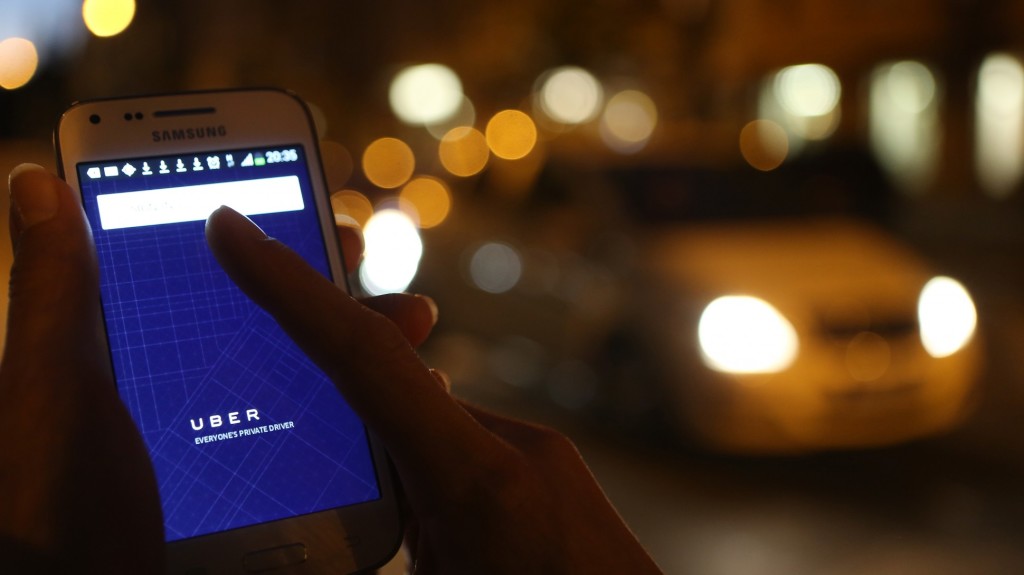
Uber, the ride-hailing service based out of San Fransisco, is set to launch operations in Huntsville Friday at 4 p.m. Not only will the service be a boon for roving residents, there are already more than 20 jobs listed on www.simplyhired.com. The company received its business license in the city Thursday and, though a few last minute issues may stall the launch, it is set to begin zipping through town just as workers are heading home for the weekend. The Huntsville City Council approved a business license last week for Uber affiliate Raiser and last month passed two ordinances to allow Uber and similar services to operate in the city. “We were very excited to bring Uber here,” said Kelly Schrimsher, communications director for the city of Huntsville. “Uber has become quite the standard for people coming into town.” Schrimsher noted that Huntsville is an “international city,” which hosts scores of out-of-towners needing to get around. While she noted that it’s “too early to tell” what kind of effect the company will have on jobs or revenue, Schrimsher said it’s an excellent opportunity for people looking to make some extra money. Schrimsher commented that the city had worked with local taxi companies concerned about Uber’s presence in the city and added that there is nothing stopping local cab companies from offering similar services to consumers in the area. “It’s about consumer choice,” Schrimsher said. “And we don’t believe the government needs to get in the way of consumer choice.” Uber has come under scrutiny of late for its business model of employing private contractors to operate its pastiche tax service, which fails to provide health insurance or other benefits. Further, consumers have complained that rates may fluctuate enormously for seemingly short car rides. Despite that, the company has garnered wild success in cities across the country and may fair well in Alabama’s metropolitan areas, which generally lack adequate taxi services. Uber launched in Birmingham two months ago and in Montgomery January. “We’re looking forward to having the service here,” Schrimsher said, adding that the city encourages similar operations, like Lyft, to follow suit. New to Uber? Sign up and your first ride is on them (up to $15).
Daniel Sutter: Unintended consequences of Uber

The disruption of established taxi markets by ridesharing services like Uber and Lyft is bringing financial ruin to some in the industry. The consequences raise complicated economic, political and ethical questions. Uber and Lyft are ridesharing services. People sign up to drive using their own cars and drive on their own schedules. Riders use an app to request a pickup. The companies facilitate sharing by generating a minimum threshold of initial trust. We teach children not to accept rides from strangers; Uber helps customers trust the stranger giving them a ride. Governments have regulated taxis for decades, requiring taxis to possess a medallion to operate legally. Limits on the number of taxis increase fares compared to unregulated competition, making customers pay extra for rides. But cab drivers do not typically benefit from the system. Why not? Regulation makes each fare somewhat higher than otherwise; let’s say that this totals an extra $20 over a typical shift. But the cabbie will not get to keep the $20 – the taxi company monitors rides and fares. The extra revenue collected day after day goes to the medallion owner, not the cab driver. Obtaining a medallion would seemingly allow the driver, not his employer, to keep the extra revenue. Taxi medallions can be bought and sold, and generally purchase is the only option, since cites rarely issue new medallions. But as Lee Corso says on ESPN’s “College Game Day,” “Not so fast!” Owners looking to sell a medallion know that the buyer will get to charge higher fares, and will accordingly charge more for the medallion. This process, known as rent capitalization, constitutes one of the more confusing results of economics. The price of medallions illustrates the extent to which cities restrict the number of taxis. The medallion, after all, is just a bureaucratic permission slip and doesn’t help transport riders. In New York, the price of medallions reached $1.2 million. Taxi regulation costs consumers enormously, and yet in a very real sense does not benefit the vast majority of cab drivers and companies. Most medallion owners today entered the business by purchasing medallions, and so profits from operating cabs merely pay back the cost of getting into the business. Economist Gordon Tullock called such a situation the Transitional Gains Trap. Ridesharing has driven fares down to the level that would have prevailed without regulation. The price of taxi medallions has fallen dramatically, by more than 25% in many cities. The city of Philadelphia recently sold some new permits for $80,000; they had hoped to sell them for nearly $500,000. Current medallion owners may not benefit much from regulation, but they certainly bear the losses from its disruption. Not surprisingly, taxi companies have battling tooth-and-nail, seeking regulations to hamstring ridesharing and suing the companies. This political opposition may, at least in some markets, limit realization of the potential gains from ridesharing. The situation also raises an ethical question. Is it fair for the current owners of taxi medallions to bear this loss? Many were hard-working cab drivers who saved and borrowed to buy a medallion, and now face financial ruin. They made business and life decisions based on expectations created by government policy over decades. Should cities make good the promise of regulation reflected in medallion purchase prices? On the other hand, taxi regulation represents an improper use of government’s regulatory power. Regulation was (and still is) defended as protecting consumers from unscrupulous or even criminal behavior on the part of taxi drivers. Government is not supposed to simply enrich one group of citizens (sellers) at the expense of another (customers). Haven’t taxi riders suffered enough? We make decisions based on the economic world around us today, and the world we expect to prevail tomorrow. Even costly and ineffective government programs shape our expectations and decisions. Consequently, ending wasteful government programs costs more than imagined. Gordon Tullock concluded that avoiding such messes altogether was the only good solution to the Transitional Gains Trap. Hopefully the difficult straits of many in the taxi industry today will encourage us say no to new ill-advised regulations governments propose this year. • • • Daniel Sutter is the Charles G. Koch Professor of Economics with the Manuel H. Johnson Center for Political Economy at Troy University and host of Econversations on TrojanVision.
Montgomery city officials give green light to Uber, approves ride sharing ordinance

Montgomery City Council has voted to allow ride hailing companies such as Uber to begin operating within the city. Multiple media outlets report that city council approved the ordinance during a Tuesday night meeting. Ride-hailing services such as Uber and Lyft let people use smartphone apps to book and pay for rides. Montgomery Mayor Todd Strange told local media he expects the decision to attract young people and businesses to the city. Uber’s public policy manager for the Southeast Trevor Theunissen told local media that prospective drivers have already signed up to work in Montgomery. Council President Charles Jinright told the Montgomery Advertiser that Uber must now get a city business license and adopt a vehicle inspection plan. Jinright says Uber could be operating within two weeks. Republished with permission of the Associated Press.
At long last, Uber launches in Birmingham at 4 p.m.

Magic City residents have something to celebrate as 2015 draws to a close: Uber is at long last launching in Birmingham on Tuesday afternoon. After more than a year and a half of negotiating with the Birmingham City Council, the San Francisco-based ride-sharing company will officially start its service in the Birmingham metro area at 4 p.m., a little more than 48 hours before New Year’s Eve festivities commence. “Residents of Birmingham have been eager to get expanded access to safe, reliable transportation options and the economic opportunities that Uber brings to the community,” said Tom Maguire, general manager for Uber in Alabama. “We are thrilled to finally be able to start operating here, and I want to personally thank city officials for all their hard work and support to make this happen.” Organizing private rides for consumers using a mobile app, Uber launched in 2009 and went international in 2012. Until today, Birmingham was the largest city the U.S. without Uber available to to its residents and visitors. But Uber is no stranger to the Yellowhammer state; Mobile and Tuscaloosa already have Uber available in their cities. To use Uber, all a user needs to do is download the app, sign up and enter credit card information in order to pay for the rides. New to Uber? You can sign-up and your first ride is on us (up to $15).
Birmingham City Council gives Uber the green light
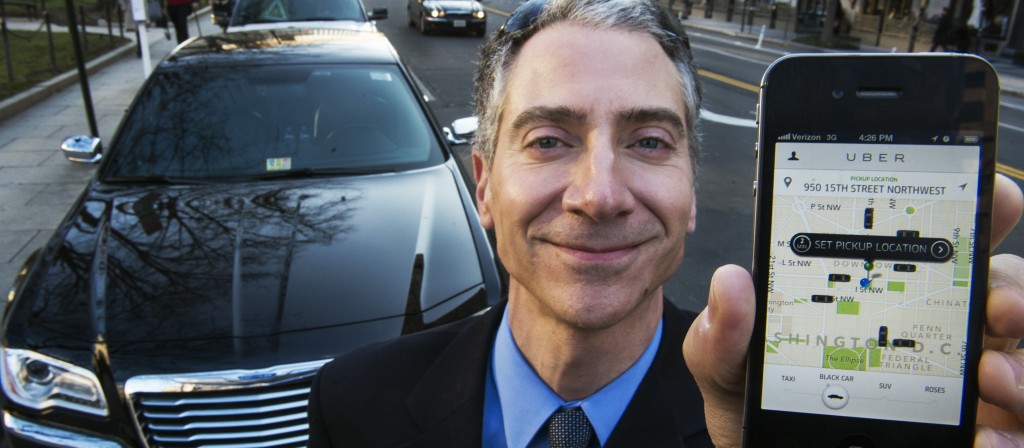
After a months-long push to allow Magic City residents to hail rides from the popular ridesharing app Uber, Birmingham City Council voted to approve an ordinance that would do just that on Tuesday. Representatives from the firm lauded the move popular service, along with competitors like Lyft, to open up shop in Alabama’s largest city within weeks. “Today’s action by the City Council is a win for riders, drivers and the city of Birmingham. We thank Council President Austin for his leadership, and look forward to bringing safe rides and economic opportunity to the Magic City in the coming weeks,” said Tom Maguire, General Manager for Uber’s operations in Alabama. Under the just-passed ordinance approved by a vote of 7-1, Maguire said he hopes Uber can begin offering rides as soon as the end of 2015. The ordinance – which Uber urged users to support via an in-app appeal – came with a last-minute amendment offered during the meeting. The amendment created a six-month provisional window during which the city will evaluate the status of safety, taxation, and other municipal concerns. City Councilors Valerie Abbott voted no, while Councilor Kim Rafferty abstained. Council President Johnathan Austin came out in support of the bill, after missing a meeting last month that had to shut down for lack of a quorum. Austin blamed the poor turnout by members on the the meeting’s proximity to the Thanksgiving holiday. Councilors Lashunda Scales, Valerie Abbott, William Parker, Sheila Tyson, Jay Roberson, Steven Hoyt, and Marcus Lundy also voted in the affirmative. The move came after about an hour and a half of debate, including some questions about city legal staff about how Uber’s vetting process for drivers. The amendment creating the six-month review period quelled those and other questions nay-sayers presented Tuesday. The ordinance doesn’t go into effect immediately, however. Birmingham Mayor William Bell – who had signaled his support for ridesharing in the past – must sign it in order for it to take force. Ride-hailing firms must then apply for and receive licenses for prospective drivers. The smaller municipalities of Homewood and Mountain Brook also recently passed ordinances to allow Uber et al. to operate within those city limits, making Birmingham the third city in the Yellowhammer State to open its roads to the services, though provisionally, at least for now.
Uber stoking support in Birmingham with new in-app “future view”
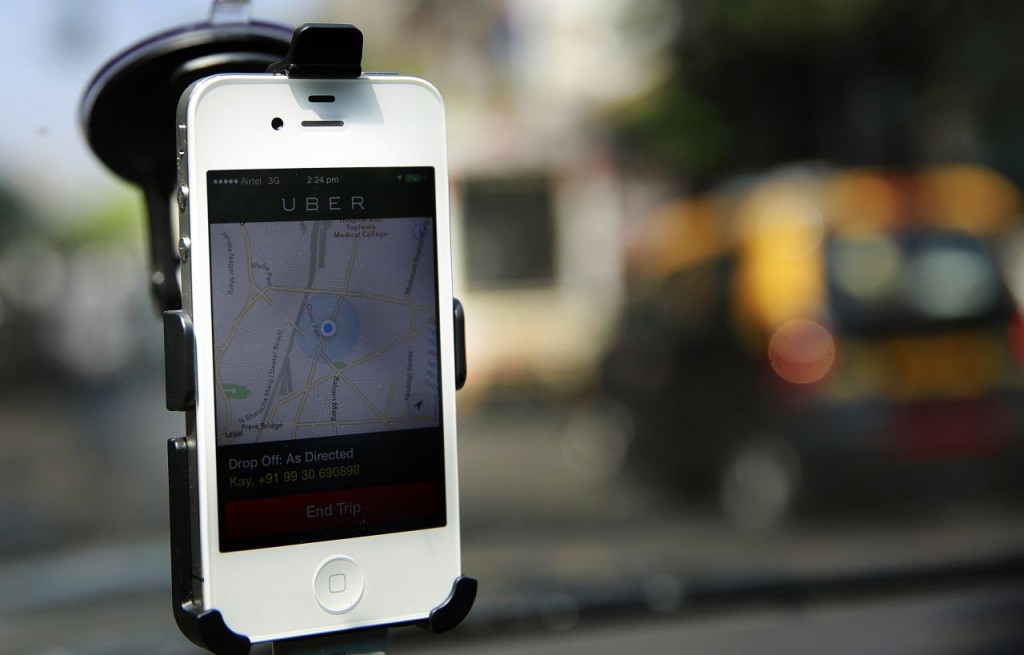
The ride-hailing app Uber has gotten creative in its months-long push to open up shop in Birmingham. Starting Friday, when you open up the app in the Magic City, instead of a car-less road map symbolizing the lack of progress in the City Council users will see a view of the future as supporters see it, in which Ubers are zipping up and down Second Avenue North. You’ll also get a little background on the firm’s regulatory battle with city officials and an option to help out the cause. “Make Uber a reality in B’ham!” a new dialogue in the app implores Birmingham. “This is how easy getting a safe ride could be if City Council pass draft regulations proposed at the meeting on Nov. 17 Committee of the Whole meeting. “Email City Council, urge them to PASS these smart ridesharing regulations this Tuesday,” reads the appeal, along with an option email your councilor. Earlier City Council meetings scheduled to take up the pro-ridesharing rules didn’t exactly live up to expectations. Five councilors failed to show up for a meeting in November, where Uber’s favored ordinance was on the docket. Council President Johnathan Austin, Councilman Steven Hoyt, Councilwoman Sheila Tyson, Councilwoman Lashunda Scales and Councilman Marcus Lundy did not attend the meeting, requiring members to adjourn for lack of a quorum. “There was no quorum. There was no consideration. There was no class,” said one AL.com editorial. “It’s all about petty politics, about fights over contractors and lobbyists.” Austin ascribed the absences to the meeting’s close proximity to the Thanksgiving holiday. Either way, Uber state General Manager Tom Maguire said Friday he is hopeful Tuesday’s meeting will be more productive. “Since August, Birmingham City Council has been working to revise regulations so that Uber can operate in the Magic City, and there’s no reason to delay any further,” said Maguire. “With this app view, Birmingham residents and visitors can see for themselves how easy it could be to get a ride in Birmingham, and what reality could look like in just a few weeks if the City Council passes the draft regulations from the November 17 Committee of the Whole meeting,” Maguire said. See below for screenshots of the new appeal:


